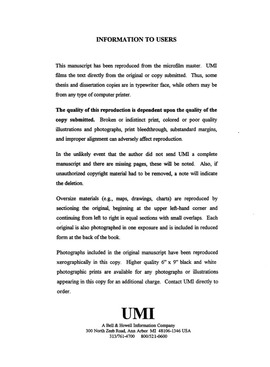| dc.contributor.advisor | Linn, Scott C., | en_US |
| dc.contributor.author | Tay, Nicholas S. | en_US |
| dc.date.accessioned | 2013-08-16T12:30:19Z | |
| dc.date.available | 2013-08-16T12:30:19Z | |
| dc.date.issued | 1998 | en_US |
| dc.identifier.uri | https://hdl.handle.net/11244/5714 | |
| dc.description.abstract | We find several interesting and intriguing results. First, results from our computer simulations reveal that market behaviors which are otherwise treated as anomalies in standard asset pricing models emerge naturally in our model. Second, our results provide support for the two diametric views held by academician and traders--that is, while academic theorists in general view the market as rational and efficient, market traders typically see the market as psychological, organic, and imperfectly efficient. Lastly, our simulations produce time series behaviors of prices and trading volume that bear strong resemblance to corresponding time series behaviors observed in real financial markets. In summary, we find (1) positive autocorrelation in trading volume, (2) positive contemporaneous correlation between trading volume and volatility, and (3) slightly excess kurtosis, ARCH-liked features, and low autocorrelation in the returns time series. | en_US |
| dc.description.abstract | We model how individuals with diverse beliefs form their price expectations in the light of events in a market that is perpetually novel and constantly evolving. Our model is unique in that it takes into consideration the fact that people, when making decisions in an ill-defined and complex environment, will exploit their innate ability to think in fuzzy notions as well as reason inductively in these fuzzy notions. The apparatus we employ to model learning and expectations formation is the genetic-fuzzy classifier system. The formulation of this apparatus, and the study of the complications that can arise when investors hold heterogeneous expectations that may change over time as well as their implications for security prices constitute the primary focus of this dissertation. | en_US |
| dc.format.extent | xi, 180 leaves : | en_US |
| dc.subject | Business Administration, Banking. | en_US |
| dc.subject | Economics, Theory. | en_US |
| dc.subject | Genetic algorithms. | en_US |
| dc.subject | Rational expectations (Economic theory) | en_US |
| dc.subject | Economics, Finance. | en_US |
| dc.subject | Economics Mathematical models. | en_US |
| dc.title | Risky asset price expectation formation and emergent market behaviors. | en_US |
| dc.type | Thesis | en_US |
| dc.thesis.degree | Ph.D. | en_US |
| dc.thesis.degreeDiscipline | Michael F. Price College of Business | en_US |
| dc.note | Source: Dissertation Abstracts International, Volume: 59-09, Section: A, page: 3578. | en_US |
| dc.note | Adviser: Scott C. Linn. | en_US |
| ou.identifier | (UMI)AAI9905630 | en_US |
| ou.group | Michael F. Price College of Business | |
